Troubling Sedimentations
A seminar held during Unearthing the Present
AC-CS #51160
While most proposed Anthropocene markers are explicit traces of anthropogenic pollution, phosphorus and nitrogen are primarily life-enabling substances, constantly mobilized, used, and (re-)cycled between bodies. The agrarian interventions of modernity have left a drastic impact on these ecological metabolisms, leading to either an excess or scarcity of these elements. These imbalances are in turn causing repercussions such as the eutrophication of waterscapes, algae blooms, and groundwater pollution, among others. Exploring the drifts, shifts, and rifts of such matters, this session traced the circulation and sedimentation processes of nitrogen and phosphorus along with knowledge production and cultural values.
Troubling Sedimentations seminar images
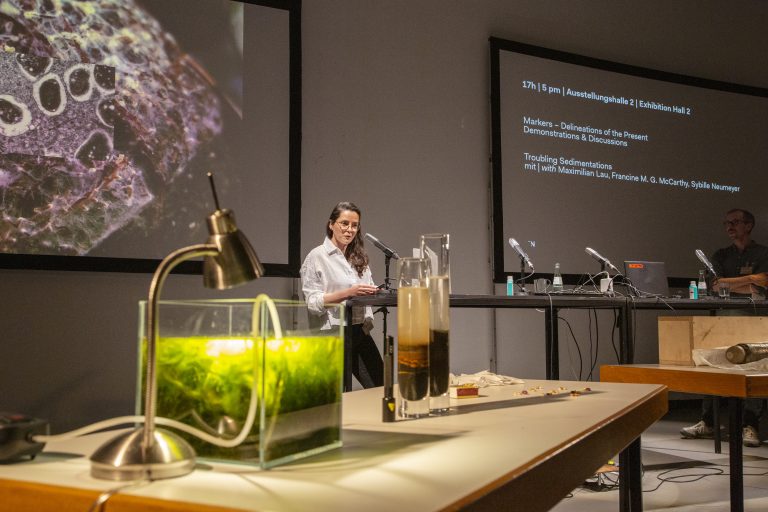
Marking the Rift? Why Phosphorus and Nitrogen are Inconclusive Markers and Why Sedimentation Technofixes Mean Trouble
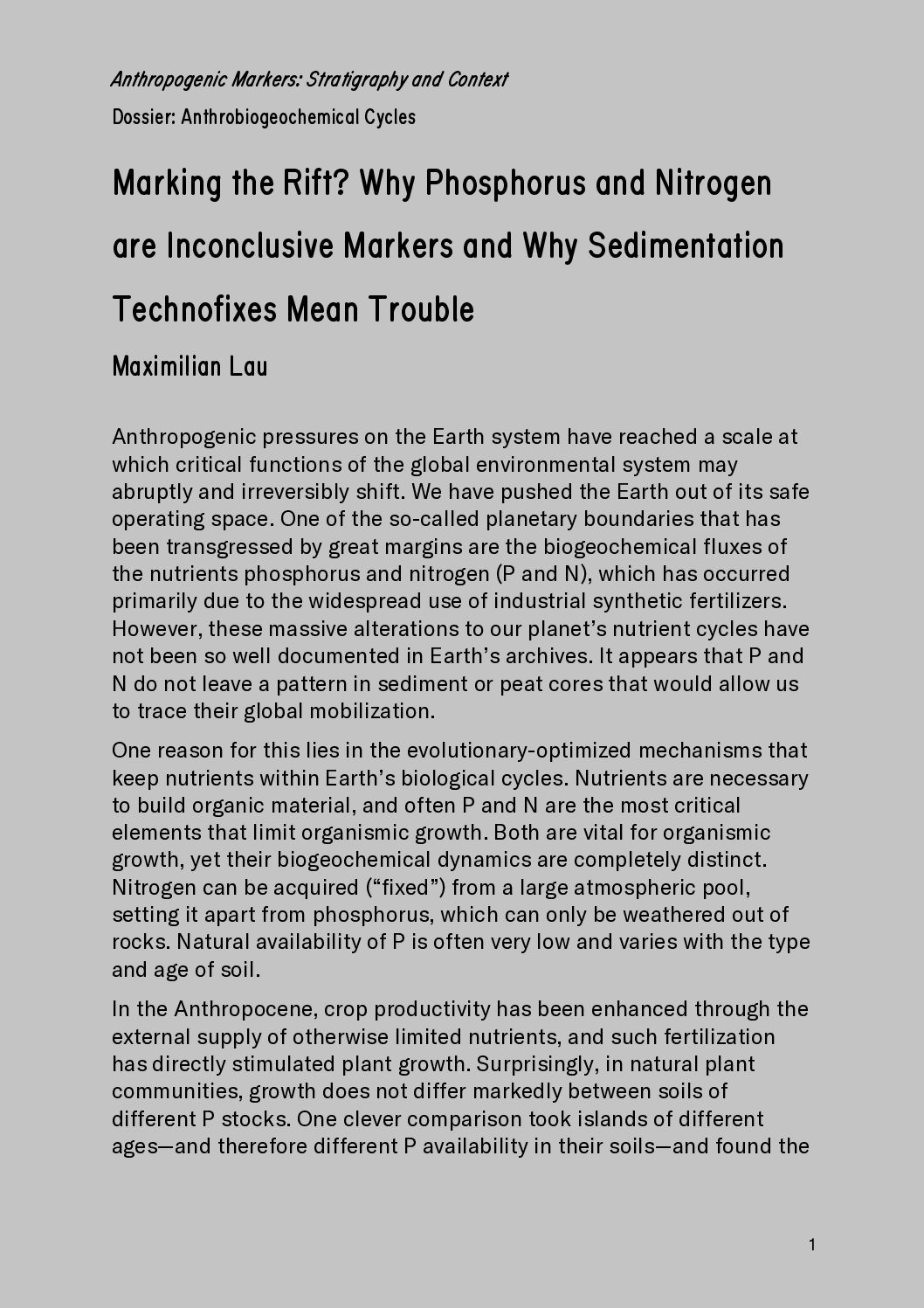
How a Lake Remembers Eutrophication: The Example of Crawford Lake
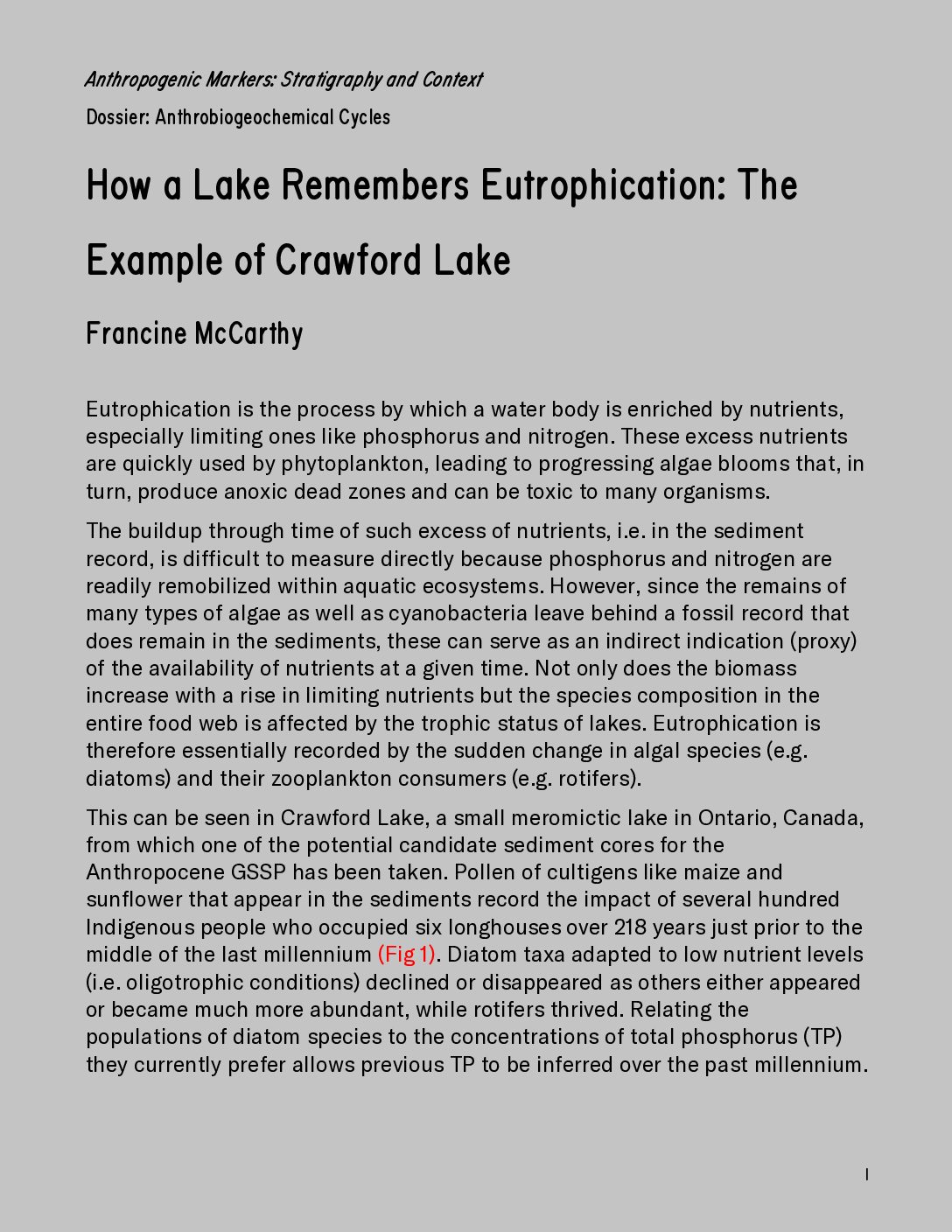
Eutrophication
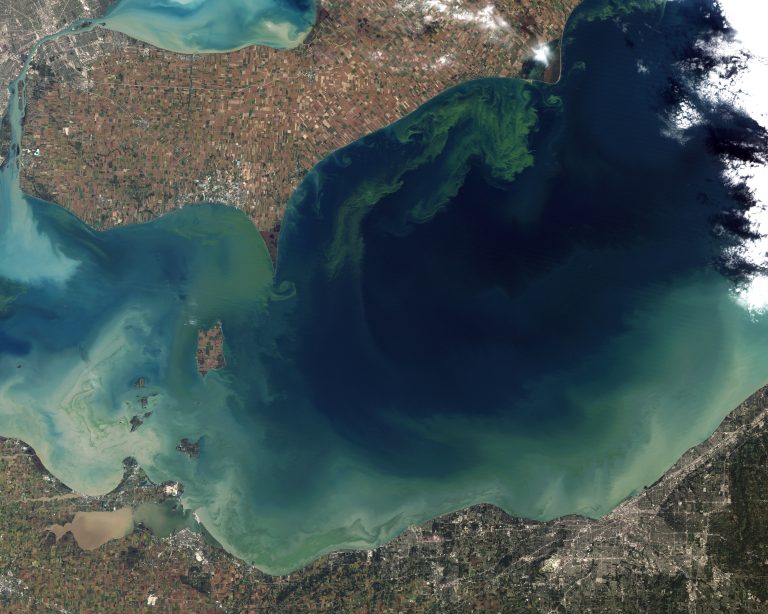
Phosphorus filter system
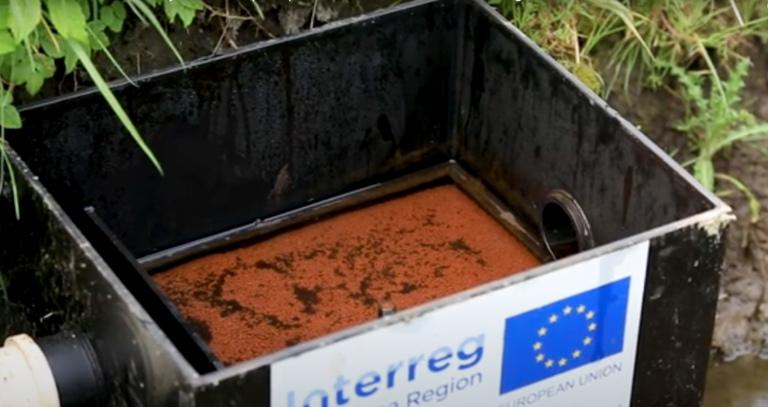
Francine M.G. McCarthy is Professor of Earth Sciences at Brock University, Canada. Her research focuses on using microfossils to reconstruct paleoenvironmental conditions, primarily on lakes in eastern North America.
Maximilian Lau is an assistant professor in the Department of Geosciences, Geoengineering and Mining at the Technical University of Freiberg. His research and teaching spans biogeochemistry, earth system sciences and limnology.
Sybille Neumeyer is an interdependent artist whose work focuses on polyphonic narration, more-than-human ecologies, bio-cultural diversity, and environmental issues.
Please cite as: Lau, M, F M G McCarthy and S Neumeyer (2022) Troubling Sedimentations: a seminar held during Unearthing the Present. In: Rosol C and Rispoli G (eds) Anthropogenic Markers: Stratigraphy and Context, Anthropocene Curriculum. Berlin: Max Planck Institute for the History of Science. DOI: 10.58049/sxdk-2y75
